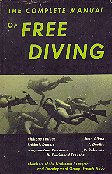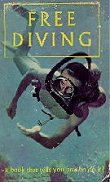Bob DBF
Contributor
"Freediving" originated with the pearl and sponge divers of ancient times. It wasn't called "snorkeling". Actually, it was called "skin diving" in the earlier part of the 20th century. Today, snorkeling does not mean you are going to depth of 100+ ft, etc. The idea that there is no distinction is nonsensical. Go on a typical snorkel boat and say "Hey, everyone, alright follow me! We're going to go down to 100 ft and look around" See what everyone says about that, LOL.
Back in the late '50"s and '60's, as I remember, skin diving was the term mostly used, and free diving, snorkeling and SCUBA were included in the term. Skin diving and free diving were used to differentiate from a hard hat diver and anyone using surface supplied air. SCUBA had to have specific equipment so it was differentiated from skin diving earlier and free diving was used by few including competitive freedivers, who later turned it into one word (similar to the acronym SCUBA being changed to the noun scuba). Skin diving went out of use when Skin Diving Magazine folded. Who knows, it might come back in a different form. The only annoyance I have, besides using SCUBA as a noun, is that snorkeling is an activity that is now defined as floating on the surface with with a snorkel and vest to keep one on the surface, rather than the larger group of activities it can be.
As for where and when the terms "free diving" and "freediving" originated, Dictionary.com gives this:
skin-dive
[skin-dahyv]
Spell Syllables
Word Origin
verb (used without object), skin-dived or skin-dove [skin-dohv] (Show IPA), skin-diving.
1.
to engage in skin diving.
Origin of skin-dive
1950-1955
1950-55
Related forms
skin diver, noun
free diving
Word Origin
noun, Chiefly British.
1.
skin diving.
Origin of free diving
1950-1955
1950-55
Related forms
free diver, noun
freediving
/ˈfriːdaɪvɪŋ/
noun
1.
the sport or activity of diving without the aid of breathing apparatus
Derived Forms
freediver, noun
It gives no date of origin for freediving being used as a word rather than two. It also excludes snorkelers who can do the same activities with a snorkel.
It's all quite confusing, and makes communication difficult, when words change in meaning.
Bob
------------------------------------
There are more ways than one to skin a cat, however the cat never likes it.







